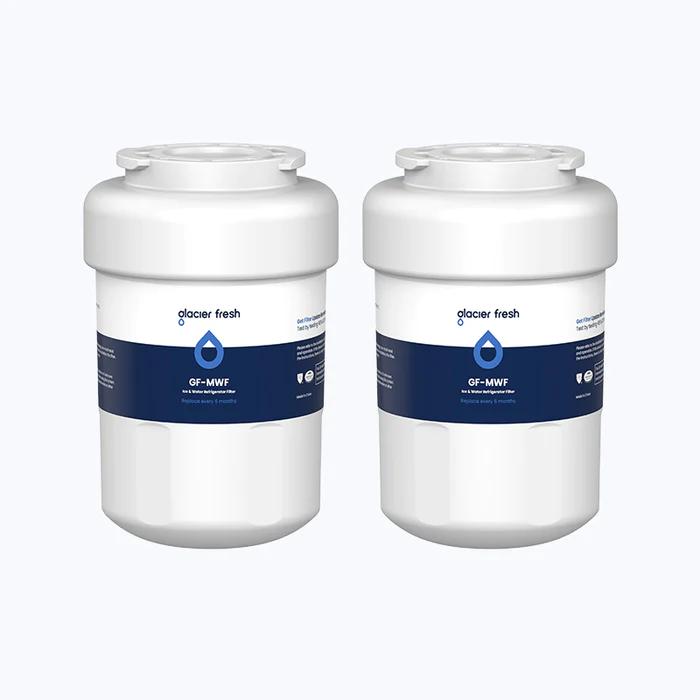Table of Contents:
What is Vitamin D?
Benefits of adequate Vitamin D levels
Factors affecting your Vitamin D levels
Symptoms and signs of Vitamin D deficiency
Health risks of Vitamin D deficiency
Tips for increasing Vitamin D intake
Recommended daily intake of Vitamin D
FAQs
Conclusion
Do you often feel tired and sluggish, even after a good night's sleep? You may need more Vitamin D. This essential nutrient is crucial to your health and well-being. But what exactly is Vitamin D, and how can you increase your intake?
This article will explore the benefits of having adequate Vitamin D levels, the factors that can affect your levels, the symptoms and signs of Vitamin D deficiency, and the potential health risks associated with a lack of this important Vitamin. We will also provide helpful tips on boosting your Vitamin D intake and the recommended daily amount you should aim for. So, let's dive in and discover the wonders of Vitamin D!
What is Vitamin D?

To understand Vitamin D, knowing its role in maintaining overall health and well-being is essential. Vitamin D is a crucial nutrient that your body needs to function correctly. It's responsible for various important functions, including supporting the immune system, promoting bone health, and helping regulate mood. One of the primary ways your body obtains Vitamin D is through exposure to sunlight. When your skin is exposed to the sun's ultraviolet B (UVB) rays, it produces Vitamin D. However, it can be challenging to get enough Vitamin D from sunlight alone, especially during the winter months or in a location with limited sunlight.
Benefits of adequate Vitamin D levels
Enhances immune system function
One of the ways Vitamin D contributes to this is by reducing inflammation in the body. Chronic inflammation is a major contributor to many diseases, including cardiovascular diseases. Studies have shown that maintaining optimal Vitamin D levels can improve cardiovascular health and reduce the risk of heart disease and stroke.
Furthermore, Vitamin D has been linked to mental health benefits, including a reduced risk of depression and improved cognitive function. Adequate levels of Vitamin D have also been associated with a lower risk of certain types of cancer, such as colon, breast, and prostate cancer. Additionally, Vitamin D plays a role in diabetes prevention by helping to regulate blood sugar levels. Therefore, ensuring you have sufficient Vitamin D levels to reap these benefits and reduce the risk of chronic diseases is important.
Reduces the risk of chronic diseases
Vitamin D has been found to have numerous benefits when it comes to reducing the risk of chronic diseases:
- It reduces inflammation, a key factor in developing many chronic conditions.
- It improves cardiovascular health by helping regulate blood pressure and reducing heart disease risk.
- Vitamin D enhances cognitive function, important for maintaining brain health as we age. It also boosts mood and has been linked to a decreased risk of depression.
- Vitamin D supports healthy aging by promoting bone health and reducing the risk of osteoporosis.
Promotes healthy bone growth and prevents osteoporosis

Vitamin D is crucial in bone health by promoting healthy bone growth and preventing osteoporosis. One way it does this is by aiding in calcium absorption, essential for maintaining strong bones. Sunlight exposure is the most effective way to obtain Vitamin D, as it triggers its synthesis in the skin. However, if you can't get enough sunlight, there are also dietary sources of Vitamin D, such as fatty fish, fortified dairy products, and egg yolks. Vitamin D supplements may sometimes be necessary to ensure optimal levels and support bone health.
Supports muscle strength
You can improve your muscle strength by ensuring adequate Vitamin D. Vitamin D is crucial in supporting muscle health and optimizing physical performance. Here are some benefits of maintaining optimal Vitamin D levels:
- Increased flexibility: Vitamin D helps promote muscle flexibility, allowing you to move more freely and perform a wider range of motions.
- Improved athletic performance: Adequate Vitamin D levels have been linked to enhanced athletic performance, including increased speed, power, and agility.
- Decreased muscle soreness: Vitamin D may help reduce muscle soreness after intense workouts, allowing for faster recovery and better overall performance.
- Faster muscle recovery: Vitamin D helps support muscle repair and regeneration, leading to quicker recovery times after exercise or injury.
- Increased muscle endurance: Optimal Vitamin D levels have been associated with improved muscle endurance, allowing you to sustain physical activity for longer periods.
Factors affecting your Vitamin D levels
By understanding the factors that impact your Vitamin D levels, you can take steps to optimize your intake and absorption of this essential nutrient. Several factors can affect your Vitamin D levels, as below:
1: Sun exposure is one of the primary sources of Vitamin D. When your skin is exposed to sunlight, it produces Vitamin D naturally. However, using sunscreen, covering your skin, and living in areas with limited sunlight can reduce Vitamin D production.
2: Dietary choices also play a crucial role in your Vitamin D levels. Foods like fatty fish, fortified dairy products, and egg yolks are good sources of Vitamin D. However, if your diet lacks these foods, you may need to consider Vitamin D supplements.
3: Skin pigmentation affects how your body produces Vitamin D. People with darker skin tones have higher levels of melanin, which can block the production of Vitamin D. Individuals with darker skin may require more exposure to the sun to maintain adequate Vitamin D levels.
4: Geographical location also plays a significant role in Vitamin D levels. Those who live in areas further from the equator may have less access to sunlight, especially during the winter months, leading to lower Vitamin D levels.
5: Age and gender can impact Vitamin D levels. Older adults and postmenopausal women are at higher risk of Vitamin D deficiency due to reduced skin synthesis and decreased absorption.
Symptoms and signs of Vitamin D deficiency

If you're deficient in Vitamin D, you may experience various symptoms and signs that indicate a lack of this essential nutrient.
- Fatigue: Feeling tired and lacking energy is a common symptom of Vitamin D deficiency. This can affect your daily activities and overall well-being.
- Bone pain: Vitamin D is crucial in calcium absorption and bone health. Without enough Vitamin D, you may experience bone pain, muscle weakness, and an increased risk of fractures.
- Depression: Studies have shown a link between Vitamin D deficiency and symptoms of depression. Low levels of Vitamin D may contribute to mood disorders and affect your mental health.
The causes of vitamin D deficiency can vary, including limited sun exposure, inadequate dietary intake, and certain medical conditions. If left untreated, Vitamin D deficiency can lead to complications such as osteoporosis, weakened immune system, and increased risk of chronic diseases. Treatment for Vitamin D deficiency usually involves:
- Increasing your exposure to sunlight.
- Consuming Vitamin D-rich foods.
- Taking supplements if necessary.
Prevention is critical, and it's essential to maintain a balanced diet and get regular sunlight exposure to ensure adequate Vitamin D levels.
Health risks of Vitamin D deficiency

Vitamin D deficiency poses significant health risks, including increased susceptibility to bone fractures and compromised immune function. To understand the importance of maintaining adequate levels of vitamin D, it's crucial to recognize the potential consequences of deficiency. Here are the health risks associated with vitamin D deficiency:
1. Increased susceptibility to bone fractures: Vitamin D is crucial for calcium absorption and maintaining strong and healthy bones. Insufficient vitamin D levels can decrease bone density, making bones more prone to fractures, especially in older adults.
2. Compromised immune function: Vitamin D modulates the immune system, enhancing its ability to fight infections. Deficiency in vitamin D has been linked to an increased risk of respiratory infections, autoimmune diseases, and even certain types of cancer.
3. Deficiency symptoms: Common symptoms of vitamin D deficiency include fatigue, muscle weakness, bone pain, and frequent infections. Recognizing these symptoms and addressing them promptly is crucial for maintaining overall health.
4. Age-specific recommendations: Daily vitamin D intake varies depending on age. For infants, the recommended intake is 400-1000 IU, while children and adults should aim for 600-800 IU. Older adults may require higher doses, especially those living in nursing homes or with limited sun exposure.
To mitigate these health risks, it's essential to ensure adequate vitamin D intake through sunlight exposure, fortified foods, and supplements if necessary.
Tips for increasing Vitamin D intake

To increase your Vitamin D intake, try incorporating sunlight exposure, dietary changes, and supplements into your routine. Here are three tips to help you get more Vitamin D:
- Spend time outdoors: Sunlight is a natural source of Vitamin D. Aim to spend at least 10-15 minutes in the sun each day without sunscreen. Be cautious not to overexpose your skin to harmful UV rays, especially during peak hours.
- Include Vitamin D-rich foods in your diet: Certain foods can naturally boost your Vitamin D levels. Fatty fish like salmon, tuna, and mackerel are excellent sources. Egg yolks, fortified dairy products, and mushrooms are good options. Consider adding these foods to your meals to increase your Vitamin D intake.
- Consider supplements if necessary: Supplements can be an option if you cannot get enough Vitamin D from sunlight and foods. It's essential to consult with a healthcare professional before starting any supplements. They can help determine the appropriate dosage based on your individual needs.
Recommended daily intake of Vitamin D

It would help if you aimed for a recommended daily intake of 600-800 International Units of vitamin D to ensure optimal health. Moreover, meeting the recommended daily vitamin D intake is important for individuals of different age groups to support their overall health and well-being. The age-specific recommendations for vitamin D intake vary depending on the age group. Here are the age-specific guidelines for vitamin D:

It is important to note that these are general recommendations, and individual needs may vary. Some individuals may require higher doses of vitamin D due to certain health conditions or deficiencies. It is always advisable to consult with a healthcare professional to determine the specific age-specific requirements and dosage for vitamin D supplementation.
FAQs
Can I get enough Vitamin D from sunlight alone?
Yes, you can get enough vitamin D from sunlight alone. Sunlight exposure is one of the natural sources of this vitamin. However, supplementation options are available to meet the recommended daily intake if you have a vitamin D deficiency.
Can Vitamin D help with weight loss?
Vitamin D can help with weight loss by boosting metabolism, controlling appetite, and promoting fat burning. It also plays a role in maintaining a healthy body composition and supporting overall weight management.
Can I get enough Vitamin D from food alone?
You can't get enough vitamin D from food alone. While some foods are sources of vitamin D, dietary recommendations suggest getting it from sunlight and supplements. Natural sources include sunlight and vitamin D-rich foods.
Conclusion
So there you have it; vitamin D is an essential nutrient crucial to our overall health. Maintaining adequate Vitamin D levels is vital for various bodily functions and can help prevent health risks associated with deficiency. By incorporating foods rich in Vitamin D, getting some sun exposure, and considering supplements if necessary, you can quickly increase your Vitamin D intake. Remember to consult a healthcare professional for personalized advice on your needs. Stay healthy and keep those Vitamin D levels up!














